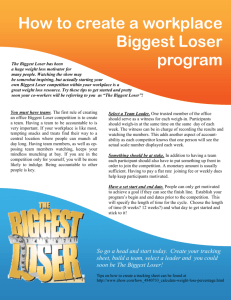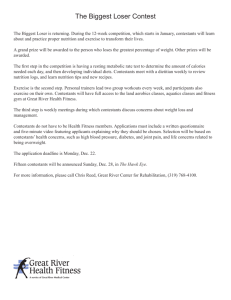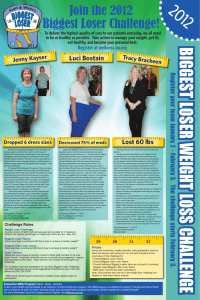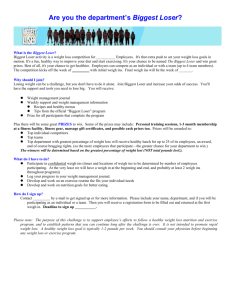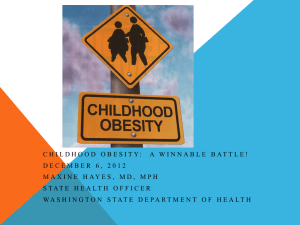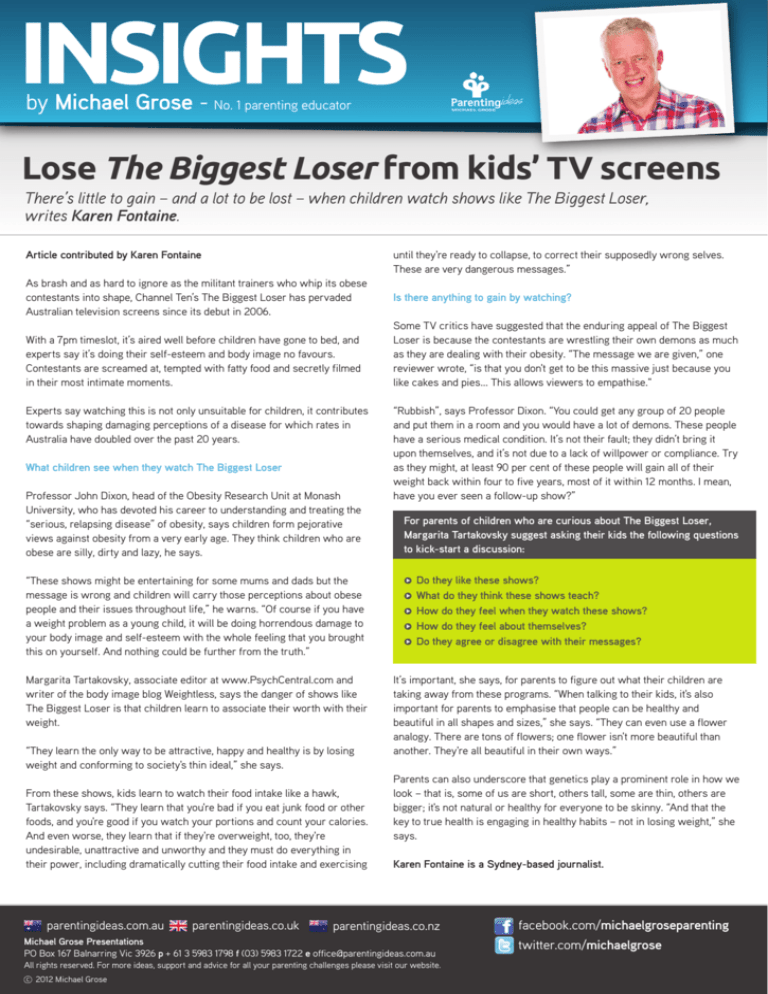
by Michael Grose - No. 1 parenting educator
Lose The Biggest Loser from kids’ TV screens
There’s little to gain – and a lot to be lost – when children watch shows like The Biggest Loser,
writes Karen Fontaine.
Article contributed by Karen Fontaine
until they're ready to collapse, to correct their supposedly wrong selves.
These are very dangerous messages.”
As brash and as hard to ignore as the militant trainers who whip its obese
contestants into shape, Channel Ten’s The Biggest Loser has pervaded
Australian television screens since its debut in 2006.
With a 7pm timeslot, it’s aired well before children have gone to bed, and
experts say it’s doing their self-esteem and body image no favours.
Contestants are screamed at, tempted with fatty food and secretly filmed
in their most intimate moments.
Experts say watching this is not only unsuitable for children, it contributes
towards shaping damaging perceptions of a disease for which rates in
Australia have doubled over the past 20 years.
What children see when they watch The Biggest Loser
Professor John Dixon, head of the Obesity Research Unit at Monash
University, who has devoted his career to understanding and treating the
“serious, relapsing disease” of obesity, says children form pejorative
views against obesity from a very early age. They think children who are
obese are silly, dirty and lazy, he says.
“These shows might be entertaining for some mums and dads but the
message is wrong and children will carry those perceptions about obese
people and their issues throughout life,” he warns. “Of course if you have
a weight problem as a young child, it will be doing horrendous damage to
your body image and self-esteem with the whole feeling that you brought
this on yourself. And nothing could be further from the truth.”
Margarita Tartakovsky, associate editor at www.PsychCentral.com and
writer of the body image blog Weightless, says the danger of shows like
The Biggest Loser is that children learn to associate their worth with their
weight.
“They learn the only way to be attractive, happy and healthy is by losing
weight and conforming to society's thin ideal,” she says.
From these shows, kids learn to watch their food intake like a hawk,
Tartakovsky says. “They learn that you're bad if you eat junk food or other
foods, and you're good if you watch your portions and count your calories.
And even worse, they learn that if they're overweight, too, they're
undesirable, unattractive and unworthy and they must do everything in
their power, including dramatically cutting their food intake and exercising
parentingideas.com.au
parentingideas.co.uk
Is there anything to gain by watching?
Some TV critics have suggested that the enduring appeal of The Biggest
Loser is because the contestants are wrestling their own demons as much
as they are dealing with their obesity. “The message we are given,” one
reviewer wrote, “is that you don't get to be this massive just because you
like cakes and pies… This allows viewers to empathise."
“Rubbish”, says Professor Dixon. “You could get any group of 20 people
and put them in a room and you would have a lot of demons. These people
have a serious medical condition. It’s not their fault; they didn’t bring it
upon themselves, and it’s not due to a lack of willpower or compliance. Try
as they might, at least 90 per cent of these people will gain all of their
weight back within four to five years, most of it within 12 months. I mean,
have you ever seen a follow-up show?”
For parents of children who are curious about The Biggest Loser,
Margarita Tartakovsky suggest asking their kids the following questions
to kick-start a discussion:
Do they like these shows?
What do they think these shows teach?
How do they feel when they watch these shows?
How do they feel about themselves?
Do they agree or disagree with their messages?
It’s important, she says, for parents to figure out what their children are
taking away from these programs. “When talking to their kids, it's also
important for parents to emphasise that people can be healthy and
beautiful in all shapes and sizes,” she says. “They can even use a flower
analogy. There are tons of flowers; one flower isn't more beautiful than
another. They're all beautiful in their own ways.”
Parents can also underscore that genetics play a prominent role in how we
look – that is, some of us are short, others tall, some are thin, others are
bigger; it's not natural or healthy for everyone to be skinny. “And that the
key to true health is engaging in healthy habits – not in losing weight,” she
says.
Karen Fontaine is a Sydney-based journalist.
parentingideas.co.nz
Michael Grose Presentations
PO Box 167 Balnarring Vic 3926 p + 61 3 5983 1798 f (03) 5983 1722 e office@parentingideas.com.au
All rights reserved. For more ideas, support and advice for all your parenting challenges please visit our website.
2012 Michael Grose
facebook.com/michaelgroseparenting
twitter.com/michaelgrose


